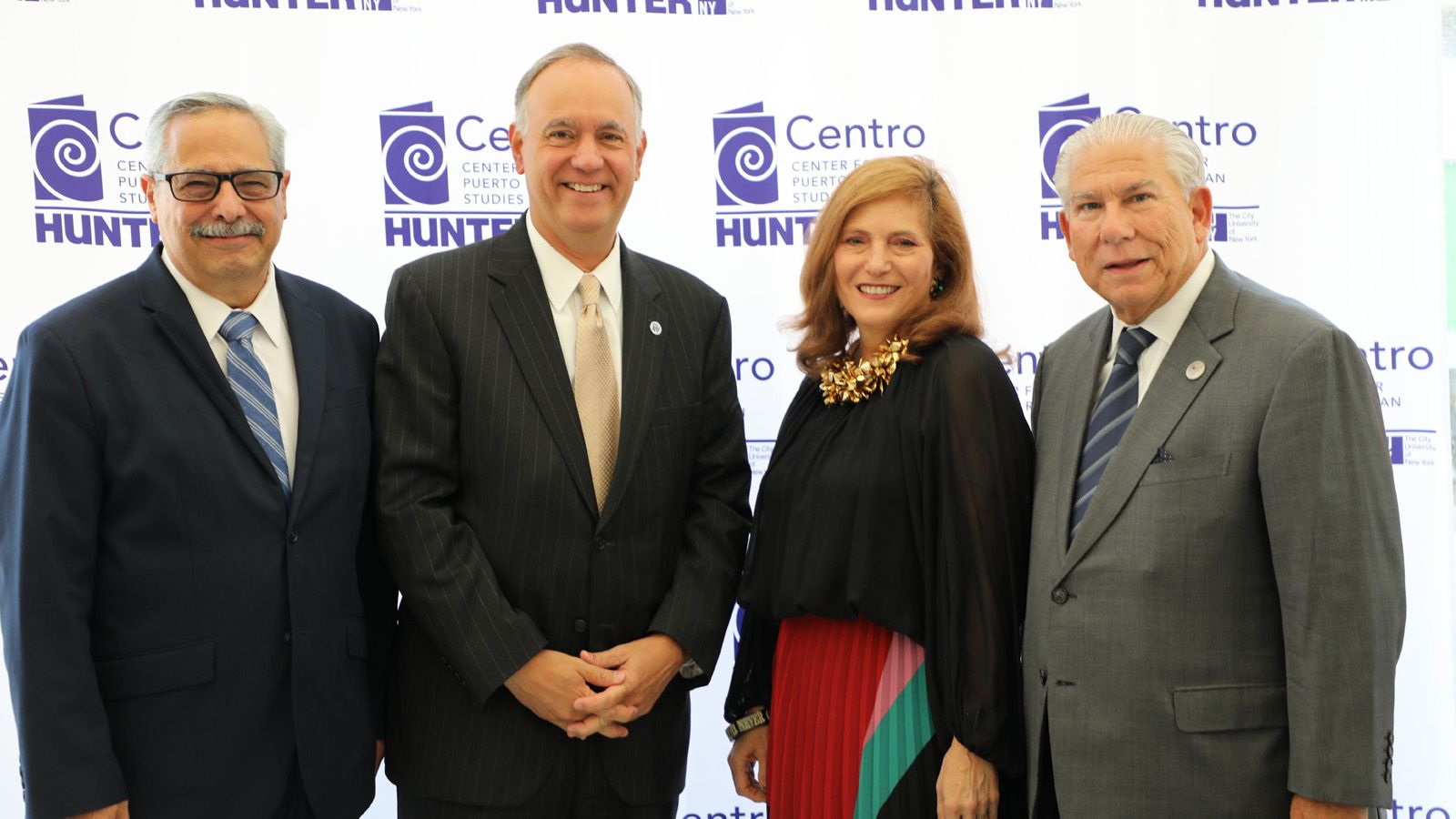Hunter College President Jennifer J. Raab and City University of New York Chancellor Félix V. Matos Rodríguez opened the Puerto Rico, Puerto Ricans Diaspora Summit 2019, hosted by Centro, Hunter College’s Center for Puerto Rican Studies.
Taking place on September 20 and September 21 at Hunter’s Silberman School of Social Work in East Harlem, the summit gathered intellectuals, policy makers, community leaders, and multimedia makers to explore issues affecting the Puerto Rican diaspora, with the goal of establishing policy priorities and focusing on rebuilding efforts for Puerto Rico in the aftermath of Hurricanes Irma and Maria.
Marking two years since the hurricanes struck Puerto Rico, the summit highlighted partnerships between Puerto Rico’s civic sector and Puerto Ricans in the diaspora who are contributing to the rebuilding of the island. Over the summit’s two days, participants discussed the state of Puerto Ricans stateside and on the island and the political events of the past three months, as well as Centro’s series of online tools available to advocates and other professionals engaged in the rebuilding efforts.
Said Hunter College President Jennifer J. Raab: “The importance of Centro cannot be overstated, given Puerto Rico’s continuing recovery from the devastation of Hurricanes Irma and Maria and the political turmoil that has grown in its aftermath. Centro’s many roles become evident through the scope of this two-day comprehensive summit. Centro ensures that policy makers and the general public have access to accurate, non-partisan research, and its role as a clearinghouse in support of disaster relief has been indispensable. This is also a homecoming of sorts for CUNY Chancellor Rodriguez, who got his start at CUNY as Hunter’s transformative director of Centro. New York and CUNY are fortunate to benefit from his continuing leadership commitment in support of both Puerto Rico and education in New York.”
The summit’s panels, plenary sessions, and workshops covered topics including economic development efforts through social entrepreneurship and locally based community development, solidarity from the diaspora and civic engagement, assistance for displaced persons and local action, and the debt crisis and austerity measures, as well as highlighting the public outcry and mass mobilization on the island.
Among the 59 panelists were more than three dozen community leaders and elected officials participating as speakers and representing nine states with the largest concentration of Puerto Ricans in the United States. The Puerto Rico delegation includes 21 speakers from the island, including former Gov. Ricardo Rosselló. To date, no other stateside or island event has brought together the depth and range of voices as this year’s summit has.


